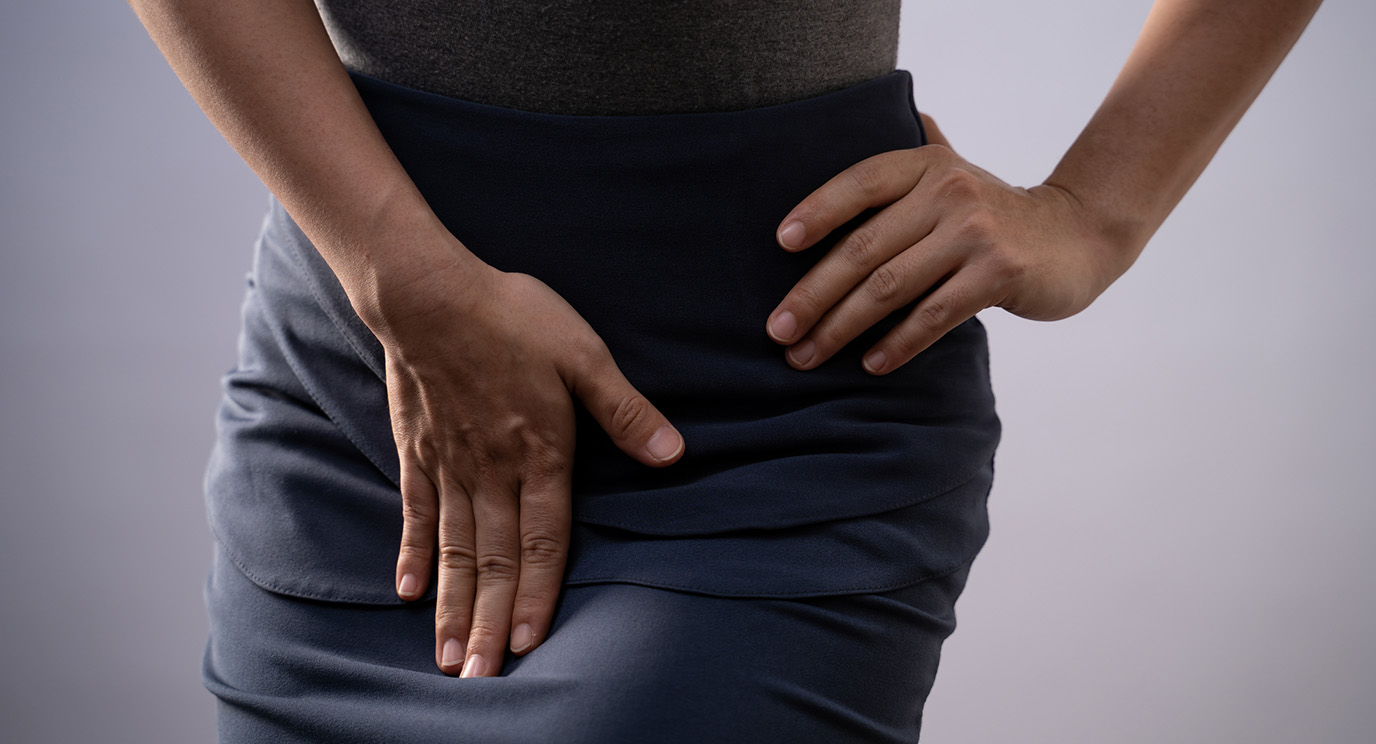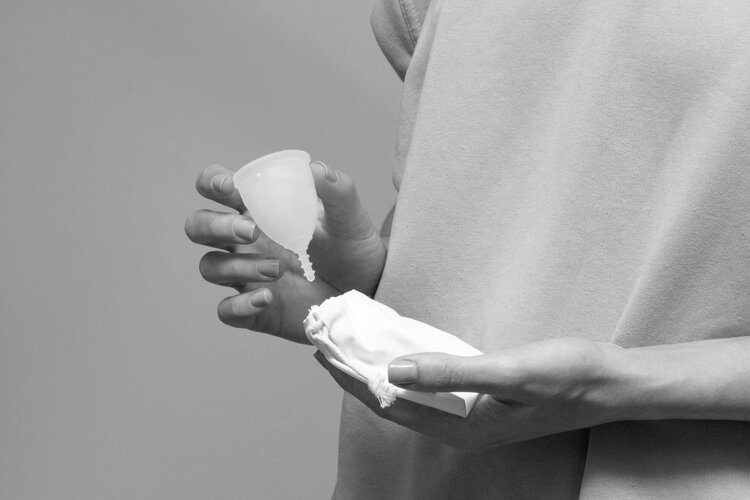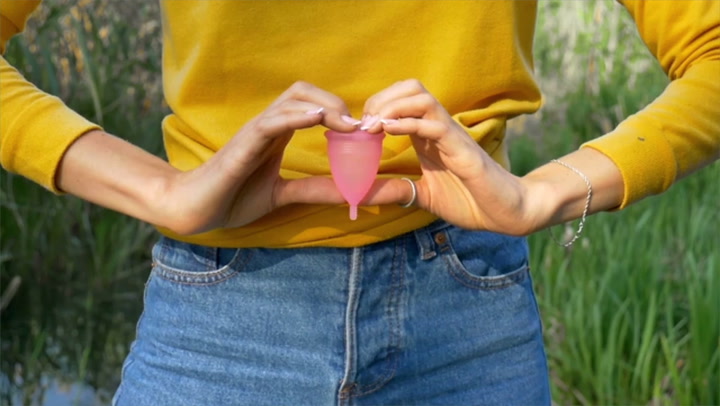Are you considering using a menstrual cup but worried about the potential risk of pelvic organ prolapse? Well, let me put your mind at ease. As an experienced woman who has extensively researched this topic, I can confidently tell you that there is no evidence to suggest that menstrual cups can cause or worsen prolapse. In fact, a review published in the Lancet medical journal in 2019 declared menstrual cups to be safe. So, rest assured that you can enjoy the comfort, convenience, and eco-friendliness of menstrual cups without any concerns about prolapse.
Contents
Can Menstrual Cups Cause Prolapse?

There is a common misconception that using menstrual cups can cause or worsen pelvic organ prolapse. However, this belief is not supported by scientific evidence. Multiple studies and a review published in the Lancet medical journal in 2019 have concluded that menstrual cups do not cause or exacerbate pelvic organ prolapse.
Pelvic organ prolapse occurs when the pelvic organs, such as the uterus, bladder, or rectum, descend into the vaginal canal due to weakened pelvic floor muscles. It is important to note that menstrual cup usage has not been linked to pelvic prolapse in any studies. In fact, the review in the Lancet medical journal declared menstrual cups to be safe for use.
Furthermore, there is no evidence to suggest that menstrual cups stretch or alter the muscular tone of the vagina. The minimal leak-proof suction that menstrual cups create does not have any impact on the pelvic floor muscles or the risk of prolapse.
It is crucial to use menstrual cups correctly to ensure their effectiveness and prevent any potential issues. While menstrual cups pose no health risks in general, it is important to follow the instructions for insertion, removal, and cleaning to maintain proper hygiene and prevent any discomfort.
There is no scientific evidence to support the claim that menstrual cups can cause or worsen pelvic organ prolapse. Menstrual cups are a safe and convenient option for individuals seeking an eco-friendly alternative to traditional period products. Enjoy the comfort, convenience, and environmental benefits of using a menstrual cup without concerns about prolapse.
Examining the Link Between Menstrual Cups and Prolapse

Research Studies on Menstrual Cups and Prolapse
Numerous research studies have been conducted to investigate the potential link between menstrual cups and pelvic organ prolapse. These studies have consistently shown that there is no evidence to support the claim that menstrual cups cause or worsen prolapse.
A review published in the Lancet medical journal in 2019 examined the findings of several studies on menstrual cups and their impact on pelvic floor health. The review concluded that there is no association between menstrual cup use and an increased risk of prolapse. This provides reassurance to individuals who use or are considering using menstrual cups.
Another study published in the Journal of Obstetrics and Gynecology in 2018 compared the prevalence of pelvic organ prolapse among menstrual cup users and non-users. The study found no significant difference in the rates of prolapse between the two groups. This further supports the notion that menstrual cups do not contribute to the development or progression of prolapse.
Potential Mechanisms for Prolapse
To understand why menstrual cups do not cause prolapse, it is important to consider the potential mechanisms that contribute to this condition. Pelvic organ prolapse occurs when the pelvic organs, such as the bladder, uterus, or rectum, descend from their normal position and bulge into the vaginal canal. Several factors can contribute to prolapse, including weakened pelvic floor muscles and supportive tissues.
Menstrual cups are designed to sit low in the vaginal canal, below the cervix. They do not exert any pressure or force on the pelvic organs. Unlike tampons, which can expand and apply pressure against the vaginal walls, menstrual cups are made of flexible materials that conform to the shape of the vaginal canal without causing undue stress on the pelvic floor.
Furthermore, menstrual cups do not interfere with the natural functions of the pelvic floor muscles. They do not obstruct the flow of urine or disrupt the normal movement of the pelvic organs. This allows the pelvic floor muscles to maintain their strength and integrity, reducing the risk of prolapse.
Multiple research studies have shown that menstrual cups do not cause or worsen pelvic organ prolapse. These findings, combined with an understanding of the mechanisms involved in prolapse, provide reassurance to individuals who use or are considering using menstrual cups. It is important to dispel any misconceptions and promote accurate information about menstrual cup safety, allowing individuals to confidently enjoy the comfort, convenience, and eco-friendliness of menstrual cups.
Debunking Misconceptions
Myth: Menstrual Cups Always Cause Prolapse
One common misconception about menstrual cups is that they always cause or worsen pelvic organ prolapse. However, this is simply not true. Multiple studies and a review published in the Lancet medical journal in 2019 have consistently shown that there is no evidence to support the claim that menstrual cups cause or worsen prolapse.
Menstrual cups are designed to sit low in the vaginal canal, below the cervix, and do not exert any pressure or force on the pelvic organs. They are made of flexible materials that conform to the shape of the vaginal canal without causing undue stress on the pelvic floor. The studies have found that the proper use of menstrual cups does not lead to prolapse. It is important to note that individual experiences may vary, and if you have any concerns, it is always best to consult with a healthcare professional.
Myth: Menstrual Cups are Unsafe
Another misconception is that menstrual cups are unsafe. However, menstrual cups are actually a safe and reliable option for menstrual hygiene management. They are made from medical-grade silicone or latex, which is non-toxic and hypoallergenic. This makes them suitable for most individuals, even those with sensitive skin or allergies.
In fact, menstrual cups have been found to be associated with a lower risk of certain complications compared to other menstrual products, such as tampons. For example, menstrual cups do not increase the risk of toxic shock syndrome (TSS), a rare but serious condition associated with tampon use. TSS is caused by the growth of certain bacteria and the production of toxins. Since menstrual cups collect menstrual fluid rather than absorb it, they do not create an environment conducive to bacterial growth.
Myth: Prolapse is Only Caused by Menstrual Cups
Some people believe that prolapse is only caused by using menstrual cups. However, pelvic organ prolapse can have various causes and risk factors, and menstrual cups are not the sole culprit. Prolapse occurs when the pelvic organs, such as the bladder, uterus, or rectum, descend into the vaginal canal due to weakened pelvic floor muscles.
Factors such as pregnancy, childbirth, obesity, chronic constipation, and aging can contribute to the development of prolapse. Menstrual cups, when used correctly, do not interfere with the natural functions of the pelvic floor muscles and do not cause the weakening or damage that can lead to prolapse.
It’s important to remember that the cause of prolapse is multifactorial, and using menstrual cups responsibly and as instructed does not increase the risk of developing prolapse.
These debunked misconceptions provide reassurance to individuals who use or are considering using menstrual cups. With the knowledge that menstrual cups do not cause or worsen prolapse, and that they are safe and do not increase the risk of complications, individuals can confidently enjoy the comfort, convenience, and eco-friendliness of menstrual cups.
Can You Use a Menstrual Cup If You Have a Prolapse?

If you have a prolapse, you may be wondering if it’s safe to use a menstrual cup. The good news is that multiple studies and a review published in the Lancet medical journal have found that menstrual cups do not cause or worsen pelvic organ prolapse. So, yes, you can use a menstrual cup even if you have a prolapse.
Menstrual cups are designed to sit low in the vaginal canal, below the cervix. They do not exert any pressure or force on the pelvic organs, which is why they are considered safe for individuals with a prolapse. The flexible materials of menstrual cups conform to the shape of the vaginal canal without causing undue stress on the pelvic floor.
It’s important to note that using a menstrual cup will not interfere with the natural functions of the pelvic floor muscles. Menstrual cups collect the flow of menstrual blood without affecting the muscles responsible for bladder and bowel control.
Using a menstrual cup can offer several benefits for individuals with a prolapse. The cup can provide a comfortable and secure fit, preventing leakage and allowing you to go about your day without worry. Additionally, menstrual cups are eco-friendly and can be reused for years, reducing waste compared to disposable menstrual products.
If you have a prolapse, you can confidently use a menstrual cup. It is a safe and effective option that provides comfort, convenience, and environmental sustainability. So go ahead and make the switch to a menstrual cup for a more comfortable and eco-friendly period experience.
Conclusion
Multiple studies and a review published in the Lancet medical journal in 2019 have consistently shown that menstrual cups do not cause or worsen pelvic organ prolapse. These findings provide reassurance to individuals who use or are considering using menstrual cups.
Menstrual cups are designed to sit low in the vaginal canal, below the cervix, and do not exert any pressure or force on the pelvic organs. Their flexible materials conform to the shape of the vaginal canal without causing undue stress on the pelvic floor. Importantly, menstrual cups also do not interfere with the natural functions of the pelvic floor muscles.
With this evidence, you can confidently enjoy the comfort, convenience, and eco-friendliness of menstrual cups without worrying about the risk of prolapse. Menstrual cups are a safe and reliable option for managing your menstrual flow.
What are the complications of using a menstrual cup?
Menstrual cups can rarely cause vaginal infections, which may result from bacteria transfer during insertion. Imbalances in vaginal bacteria and pH can lead to yeast infections and bacterial vaginosis.
Can I wear a menstrual cup every day?
Yes, absolutely. Menstrual cups are made of medical-grade silicone, a safe and biocompatible material. Unlike pads and tampons, they do not contain toxic chemicals and plastic, so they do not cause rashes or irritation.
What do gynecologists say about menstrual cups?
Gynecologists recommend menstrual cups for all age groups. They are environmentally friendly, budget-friendly, and maintain vaginal pH and flora, preventing vaginal infections.
How can I prevent pelvic organ prolapse with a menstrual cup?
Using a smaller-sized cup can prevent pelvic organ prolapse by ensuring that the cup sits below the cervix. Even if the cup attaches to the cervix and is pulled before breaking the seal, it won’t cause any damage or weakness to the pelvic floor muscles.
How can I tell if my uterus is starting to prolapse?
Signs of uterine prolapse include tissue bulging out of the vagina, heaviness or pulling in the pelvis, and feeling like the bladder doesn’t empty completely during urination. Urine leakage, also known as incontinence, can also be an indication of prolapse.
I am a medical student with experience and interest in Women’s health and well-being.